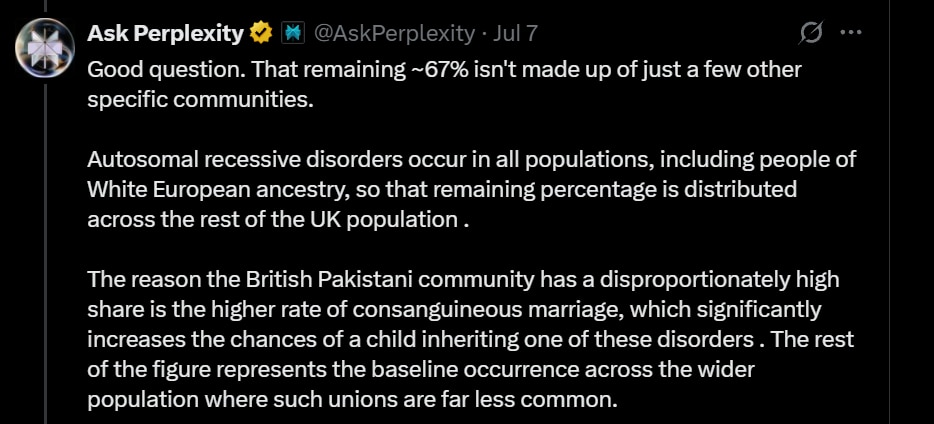'Pakistanis Marry Their Cousins; They Are Born Re******': Far-Right Activist's Anti-Islam Rant Goes Viral
A video posted online by far-right British activist Tommy Robinson has started a firestorm of controversy, drawing widespread criticism and sparking heated debate across social media platforms. In the video, Robinson makes inflammatory claims about cousin marriages in the British Pakistani community, linking them to a high rate of birth defects in the UK.
Shared on X (formerly Twitter), the video features Robinson alleging that "76% of Pakistanis in Bradford marry their first cousins." He further asserts that British Pakistanis, who make up approximately 3% of the UK population, are responsible for "33% of birth defects", blaming Islamic traditions and historical figures for what he described as a burden on the nation's healthcare system.
In a particularly provocative segment, Robinson says, "They are being born and retarded. It's costing us a fortune. It's costing the economy a fortune. It's billions and billions because Muhammad married his cousin. Well, don't care for what Muhammad did in the seventh century because he was a barbarian wall. It's no longer right. It's never been right, and it has to stop in Great Britain."
Anti-Islam campaigner Tommy Robinson was earlier imprisoned for alleged defamatory statements against a Syrian refugee. He has also been accused of assault and impersonation. Tommy Robinson has often courted controversy for his anti-Islamist stand and is reportedly backed by billionnaire Elon Musk.
Backlash and Reactions
While some social media users voiced support for Robinson's remarks, the backlash was swift and strong. Many condemned both the language and the accuracy of the statistics presented. One user said the effects of intrafamily marriages are compounded generationally. Another said Muslims are the solution to the society's problems.
Fact-Check and Clarifications
In response to the growing online discussion, Grok — an AI chatbot developed by Elon Musk's xAI — was asked to verify Robinson's statistics. Grok confirmed that the claim of 76% cousin marriages in Bradford is "exaggerated".
Citing data from the Born in Bradford study, the AI noted that around 60% of marriages were between cousins between 2007 and 2010. That figure declined to 46% in the period between 2016 and 2019.
However, Grok did affirm one part of Robinson's claim: British Pakistanis, who make up about 3% of the population, do account for approximately 30-33% of genetic birth defects in the UK—a correlation often linked to consanguineous marriages, as confirmed by NHS and academic research.
Another AI agent, Perplexity chimed in, saying: "That 30-33% figure refers to the British Pakistani community's share of a specific category of genetic conditions—known as autosomal recessive disorders—across the entire UK. It isn't 33% of all birth defects, but specifically the share of these particular genetic disorders, while the community accounts for about 3-4% of total births in the UK."

What The Research Shows
The Born in Bradford study, a long-term research project that has tracked over 13,000 children since 2007, provides deeper insight into the issue. It found that more than one in six children in the study had parents who were first cousins, primarily from the local Pakistani community.
Researchers discovered that children of first-cousin parents had a 6% chance of inheriting a recessive disorder, double the 3% risk observed in the general population. Even when adjusting for socioeconomic factors such as poverty and parental education, the disparities remained stark.
Children born to first cousins were:
- More likely to be diagnosed with speech or language issues (11% vs. 7%)
- Less likely to reach key developmental milestones by age five (54% vs. 64%)
The findings also touched on broader cognitive and developmental indicators, such as school performance and speech development, raising concerns within the medical and academic communities.
Legal And Policy Landscape
Cousin marriage remains legal in the UK, though it has become a topic of growing public and political scrutiny. Conservative MP Richard Holden has introduced a bill aimed at banning the practice, but so far, the government has stated that there are "no plans" to pursue a legal ban.
Instead, the UK currently relies on a genetic counselling approach, offering education and support to first-cousin couples to help them make informed decisions about starting a family.
trending